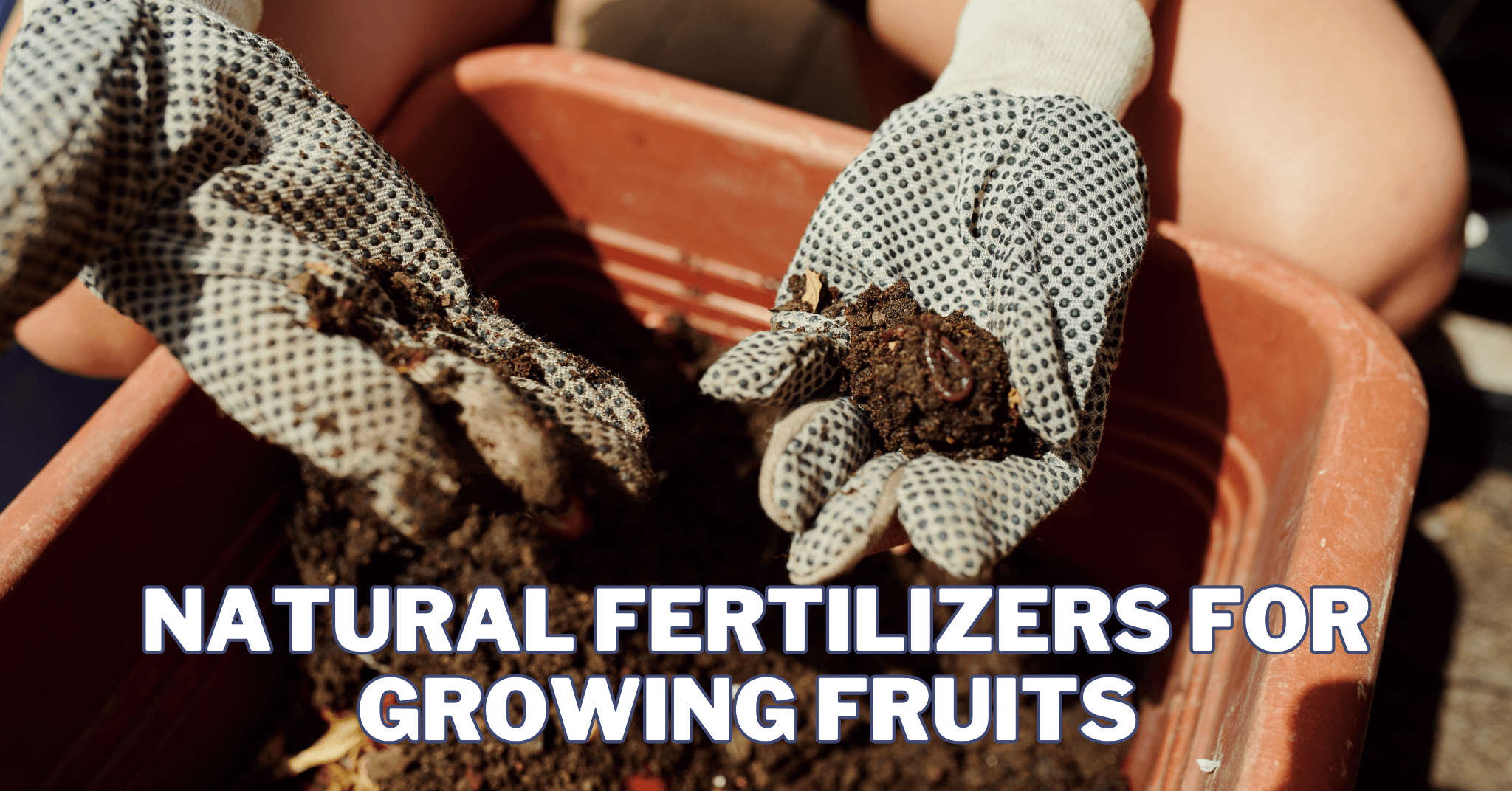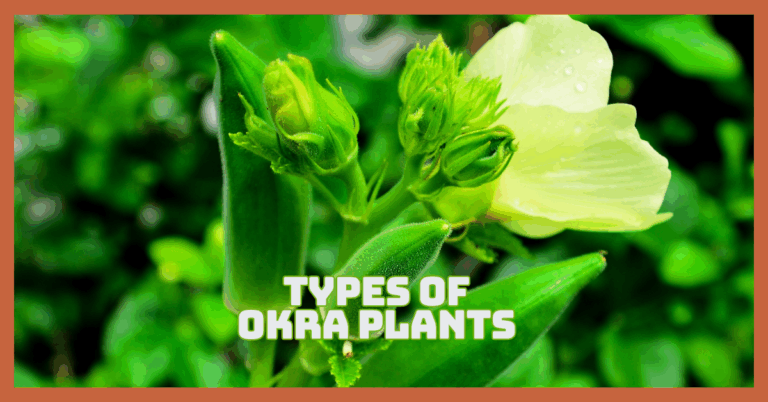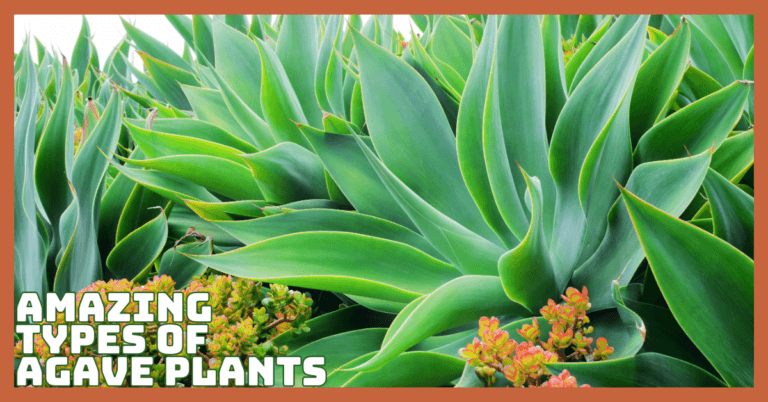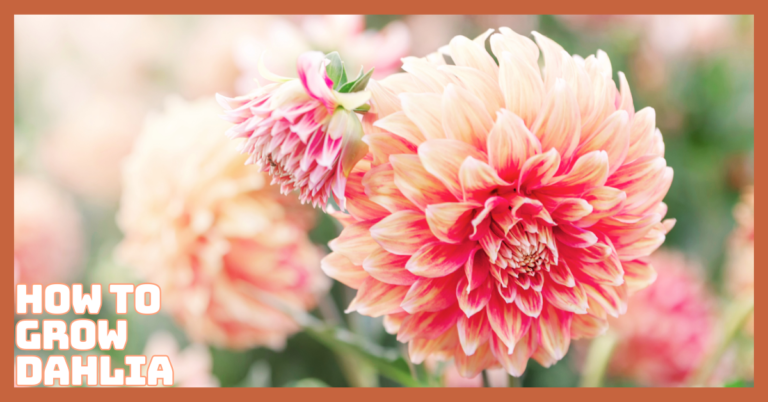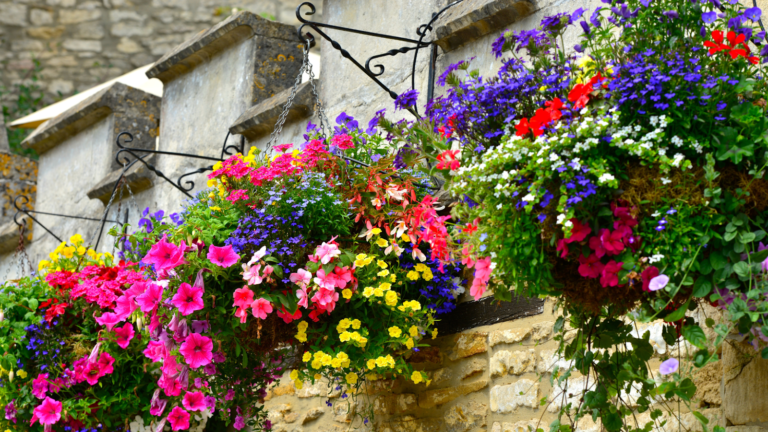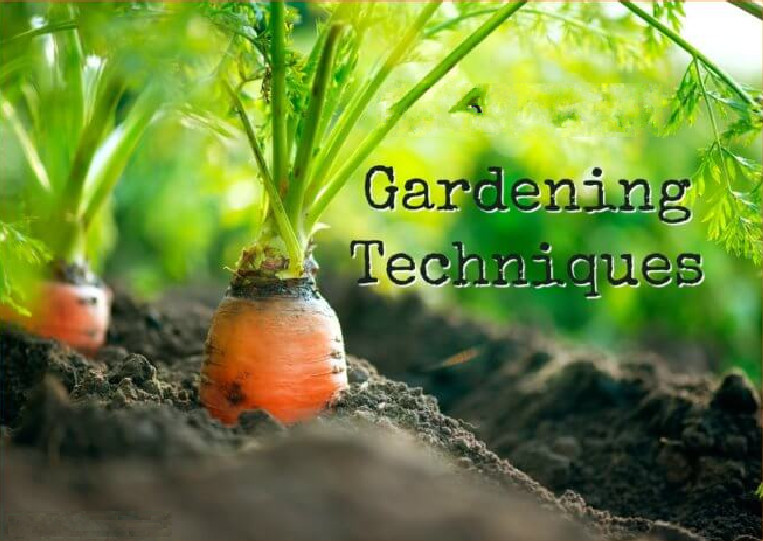Natural Fertilizers For Growing Fruits
Natural Fertilizers For Growing Fruits
In the world of horticulture, where flavour, nutrition, and abundance are the cherished fruits of our labour, the choice of fertilizers plays a pivotal role.
As we embark on a journey into cultivating delicious, vibrant fruits, the spotlight turns to nature's bounty of natural fertilizers, revealing the secrets to nurturing orchards that yield nature's finest.
These organic wonders are more than just tools for growth; they are the alchemists of flavour, the guardians of health, and the keepers of sustainable cultivation practices.
Join us as we explore the art of nurturing fruit-bearing plants with the gentle touch of natural fertilizers, unlocking the secrets to orchards teeming with vitality, taste, and the sweet promise of nature's finest offerings.
Benefits Of Natural Fertilizers For Growing Fruits
The benefits of using natural fertilizers for growing fruits are abundant and far-reaching. First and foremost, they contribute to producing healthier and more flavourful fruits.
Unlike synthetic counterparts, natural fertilizers enrich the soil with a balanced blend of essential nutrients while promoting microbial activity.
This enhances fruit quality and bolsters the resilience of fruit-bearing plants, making them less susceptible to diseases and pests.
Furthermore, natural fertilizers support sustainable farming practices by reducing the environmental impact associated with chemical fertilizers. They minimize the risk of nutrient runoff and water pollution, safeguarding our precious ecosystems.
Beyond that, these organic fertilizers improve soil structure and moisture retention, ensuring fruit trees and bushes receive the consistent nourishment they need throughout the growing season.
In essence, natural fertilizers don't just yield an abundant harvest; they foster a harmonious relationship between nature and agriculture, yielding fruits that are not only delicious but also wholesome for both the land and its stewards.
A Guide To Natural Fertilizers For Growing Fruits
In the enchanting world of horticulture, where the promise of sweet, sun-kissed fruits beckons each passing season, a time-honoured secret is known to the green-thumbed custodians of orchards and gardens.
It's a secret whispered through the rustling leaves, shared in the scent of blossoms, and woven into the very tapestry of nature itself—the art of nurturing fruits with the gentle touch of natural fertilizers.
Here are some natural fertilizers you should use for growing fruits:
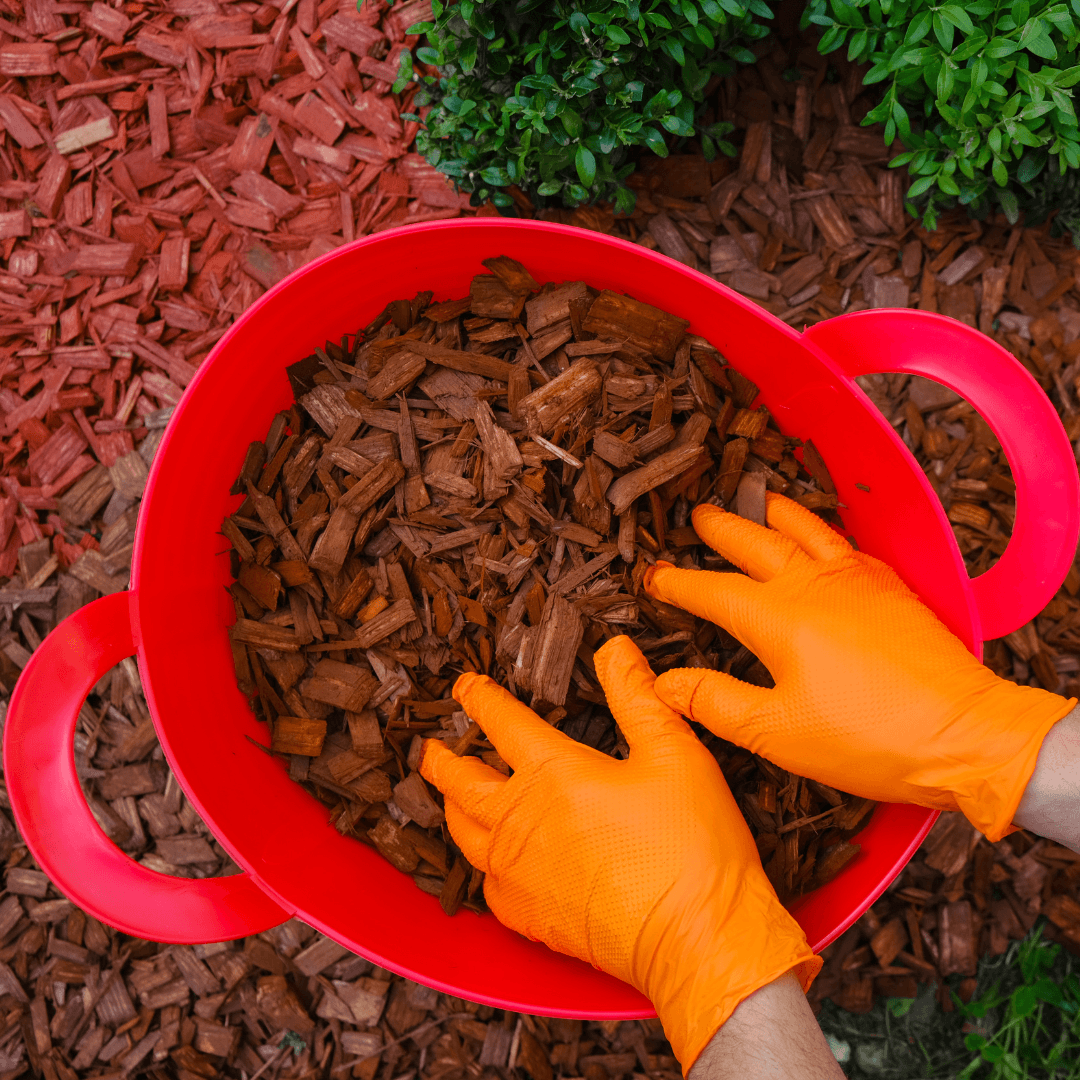
1. Wood Chips Or Mulch
Wood chips or mulch are like the unsung heroes of the orchard, quietly working their magic beneath the fruit-laden branches.
While they might not be traditional fertilizers, their role in nurturing fruit trees and bushes is essential.
When spread generously around the base of fruit-bearing plants, these woody guardians protect the soil from the harsh sun and extreme temperatures.
But their contributions don't stop at shade; they are masters of moisture retention, ensuring that the earth beneath remains consistently hydrated, even in the driest seasons.
In the eternal battle against weeds, wood chips and mulch are formidable allies. They offer weed control and enrich the soil with valuable organic matter, contributing to the benefits of natural fertilizers for growing fruits.
They form a natural barricade, discouraging unwanted intruders from encroaching on the territory of your precious fruit-bearing plants.
As these woody layers gradually break down, they offer a silent gift to the soil—organic matter. This slow decomposition enriches the earth with nutrients, enhancing its structure and fertility.
It's a testament to the enduring partnership between nature and agriculture, where even the simplest materials can contribute to the thriving symphony of fruit-bearing trees and bushes.
So, as you spread the wood chips or mulch around your orchard, know that you're not just mulching; you're nurturing, protecting, and fortifying the foundation of your fruit-filled dreams.
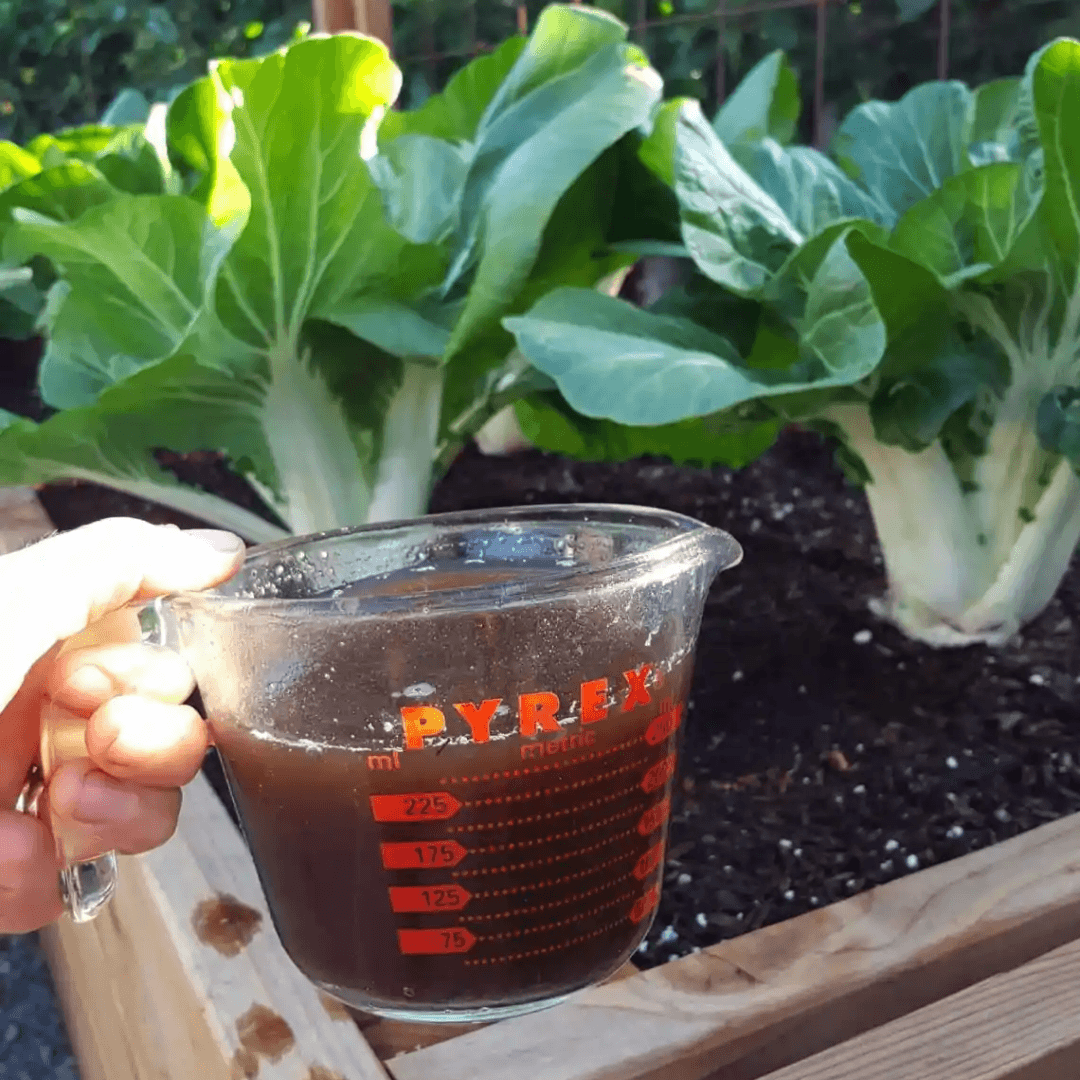
2. Green Tea Compost
Green tea compost is like a rejuvenation for your fruit-bearing plants, an infusion of vitality from the remnants of your calming tea rituals.
Crafted from used green tea leaves, this compost embodies the essence of sustainable gardening, where every cup of tea contributes to the flourishing of your orchard.
As you spread this verdant treasure around the base of your fruit trees and bushes, you recycle and engage in horticultural alchemy.
These tea-infused remnants serve as a source of organic matter, enriching the soil with essential nutrients, including nitrogen, potassium, and trace minerals.
Picture your orchard as a sanctuary where the roots of apple trees and berry bushes stretch out in gratitude, absorbing the goodness of green tea compost.
It's more than just nourishment; it's a holistic approach to fruit cultivation, promoting soil health, enhancing moisture retention, and fortifying the foundation from which your fruits draw life.
This organic blend is nature's way of reminding you that sustainability can be as simple as a cup of tea and that the rituals of your kitchen can seamlessly harmonize with the rhythms of your garden.
In the grand symphony of fruit-bearing, green tea compost takes its place as a gentle conductor, orchestrating a vibrant performance where fruits thrive and nature applauds.
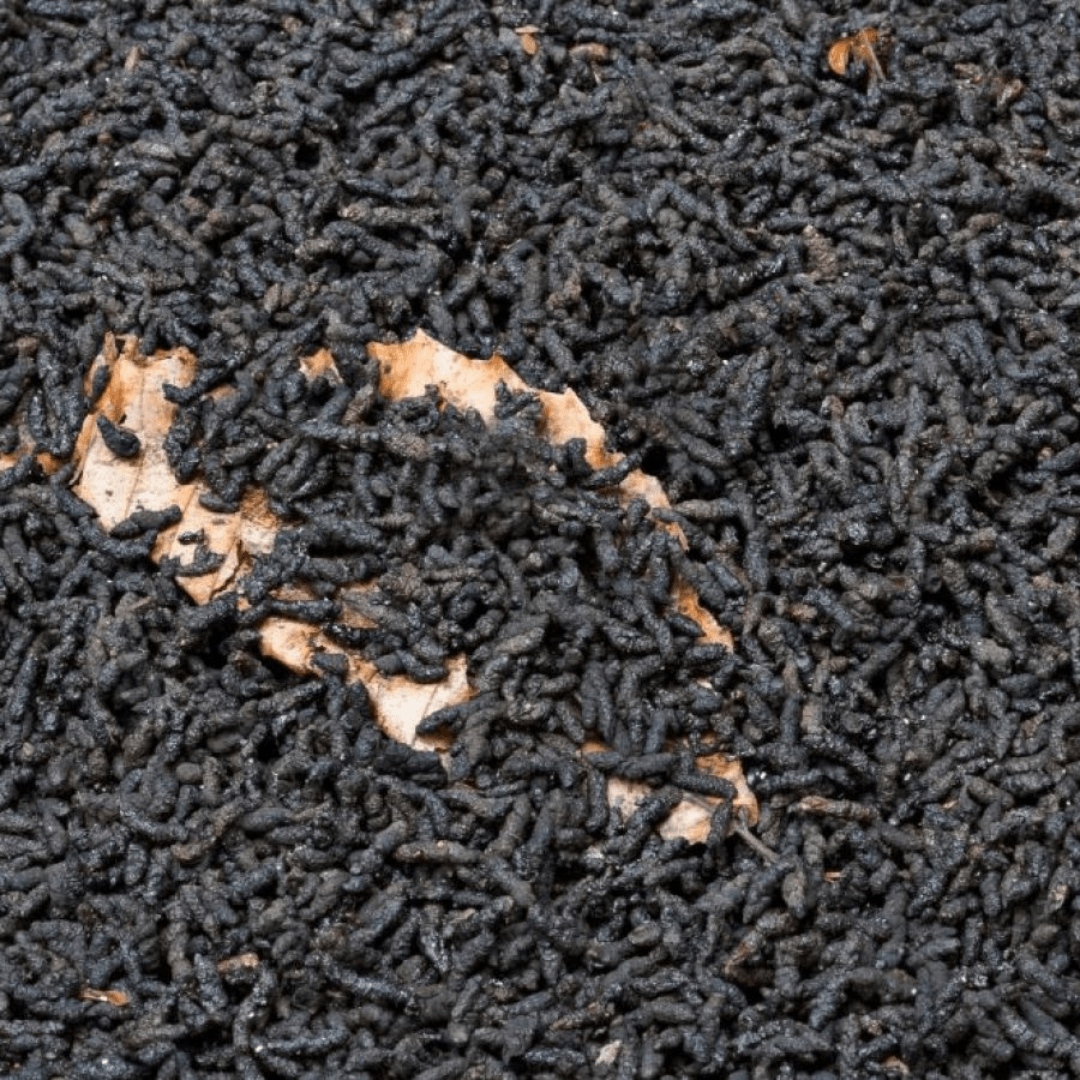
3. Bat Guano
Imagine a secret garden where fruit-bearing plants flourish under cover of night, basking in the potent magic of bat guano.
This natural fertilizer, composed of the nutrient-rich excrement of bats, is a treasure trove of phosphorus and nitrogen.
This dynamic duo propels the orchard into a symphony of blossoms and fruits. As you introduce bat guano to your fruit trees and bushes, you're inviting these elusive night-dwellers to be your silent partners in cultivation.
Phosphorus, the unsung hero of plant growth, is responsible for the enchanting burst of blooms that adorn your fruit-bearing plants.
Bat guano's generous supply of this essential nutrient fuels a spectacular flowering show, promising an abundant harvest. Nitrogen catalyzes vibrant foliage and overall plant health, ensuring that your fruit trees are prolific and robust.
Natural fertilizers for growing fruits, such as bat guano, contribute to fruit-bearing plants' exceptional flowering and overall health, highlighting their essential role in bountiful harvests.
The beauty of bat guano lies not only in its nutrient content but also in its eco-friendly origins. Harvested from bat colonies, it embodies the intricate web of life in which these nocturnal creatures play a vital role.
As you apply bat guano to your orchard, you become part of this natural cycle, a steward of the earth's biodiversity. When bats take to the skies for sustenance in the quiet night hours, they unknowingly contribute to your garden's bounty.
Bat guano is not just a fertilizer; it's a reminder of the harmonious relationship between nature and agriculture, where even the most unexpected allies can lead to a fruit-filled symphony.
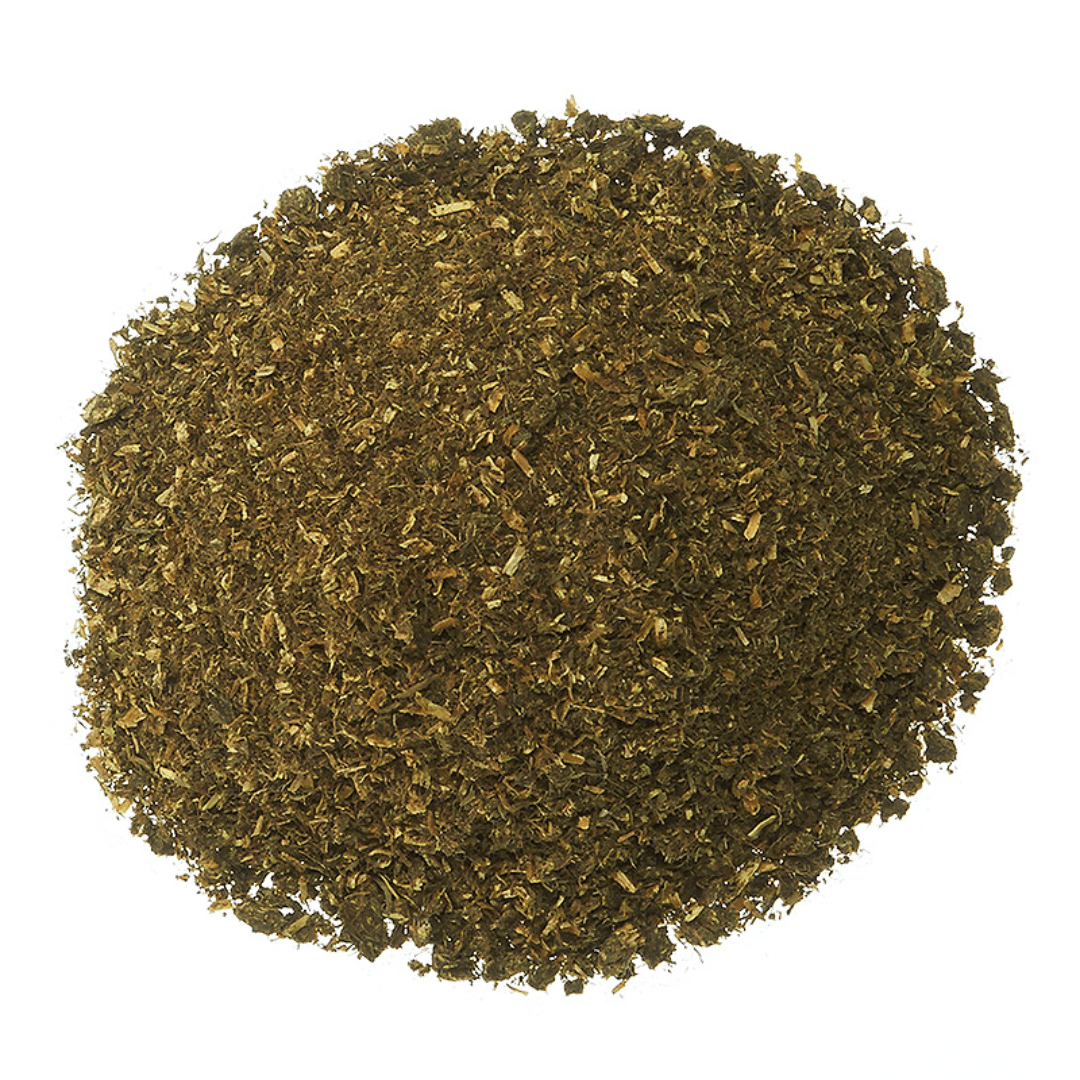
4. Alfalfa Meal
In the realm of fruit cultivation, where each tree and bush has its own story, the alfalfa meal emerges as a storyteller of growth and abundance.
This unassuming yet powerful natural fertilizer is like a hidden gem in the garden, offering a wealth of essential nutrients to your fruit-bearing plants.
At its core, alfalfa meal is a source of nitrogen, a vital element for lush foliage and strong stems, ensuring that your fruit trees stand tall and robust.
But it doesn't stop there; it extends its generosity with a dose of potassium, the guardian of flowering and fruiting.
As your orchard awakens to the magic of alfalfa meal, expect to witness an orchestration of blossoms and the promise of succulent fruits.
What sets alfalfa meal apart is its ability to infuse the soil with an array of trace minerals—those subtle yet significant elements that contribute to the overall well-being of your fruit plants.
These minerals foster resilience, bolstering the plants' defences against pests and diseases. Additionally, they enhance the flavours and nutritional profiles of the fruits, turning each bite into a sensory delight.
Alfalfa meal embodies the harmony between nature and agriculture, showcasing how a simple plant, alfalfa, can be transformed into a catalyst for growth and vitality in your orchard.
As you sprinkle this gift of nature around the base of your fruit trees and berry bushes, you're not just feeding them; you're nurturing a thriving ecosystem where fruits become the sweetest chapters in your garden's ongoing story.
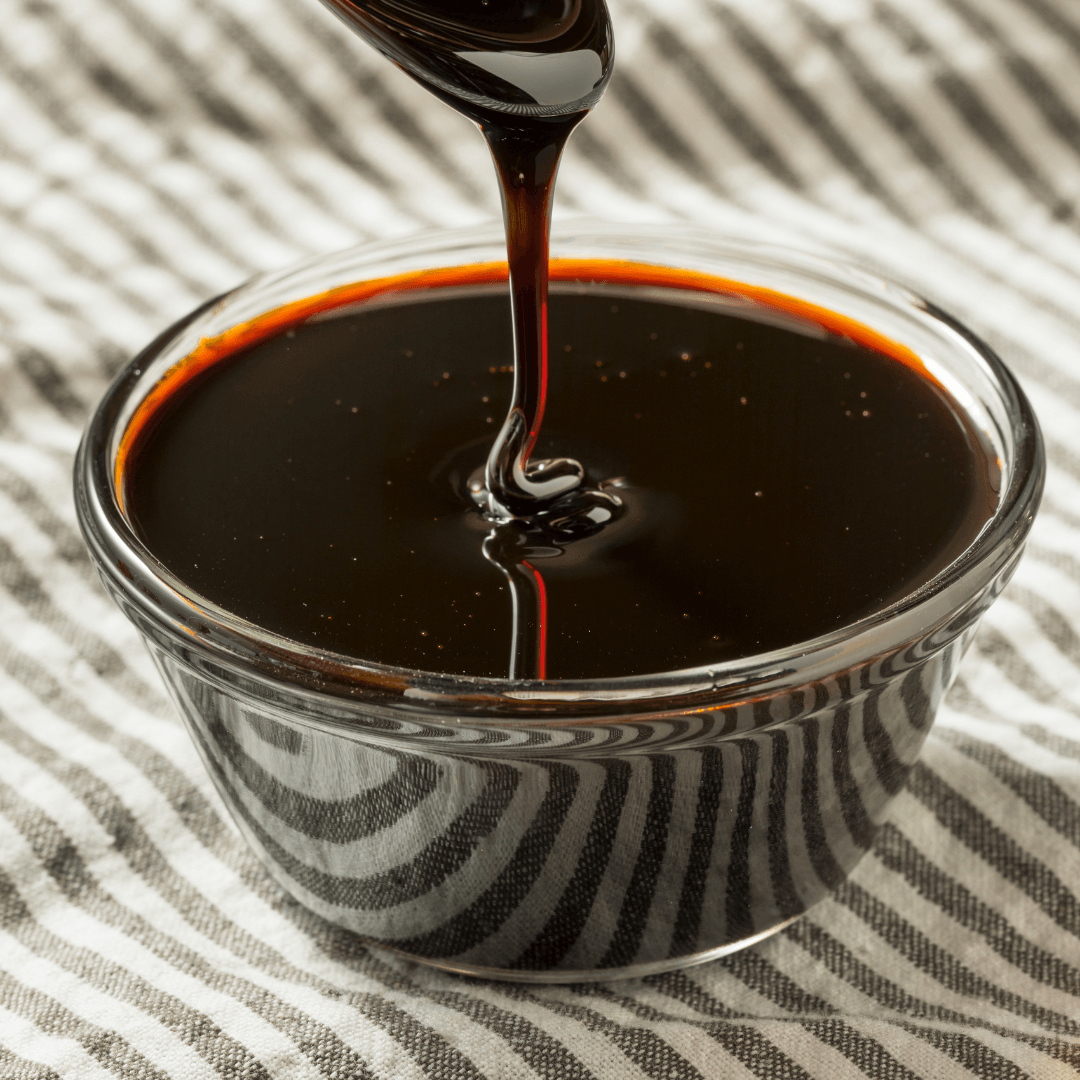
5. Molasses
Molasses, the dark and syrupy elixir coveted for its rich flavour in the kitchen, holds a lesser-known role as a behind-the-scenes conductor of a microbial orchestra in your orchard.
When applied as a soil drench, this humble byproduct of sugar production catalyzes a bustling underground world. Picture it as a grand banquet for the unseen residents of your soil—microbes, fungi, and beneficial bacteria.
As they feast on molasses, their populations surge, creating a vibrant ecosystem beneath the roots of your fruit-bearing plants.
Now, here's where the real magic happens. These microorganisms, nourished by natural fertilizers for growing fruits like molasses, play a crucial role in the nutrient recycling process, ultimately ensuring your orchard receives the essential nourishment it needs to thrive.
They transform complex compounds into forms that fruit trees and bushes can readily absorb. In essence, molasses indirectly benefits your fruit plants by enhancing nutrient availability.
It's as though you've invited an army of tiny gardeners to tend to the soil, ensuring that your orchard receives a steady supply of nourishment.
But there's more to molasses than its role in nutrient cycling; it also acts as a natural chelating agent, binding with trace minerals in the soil and making them more accessible to your fruit-bearing plants.
This double-duty performance promotes vigorous growth and contributes to your orchard's overall health and resilience.
So, the next time you reach for a jar of molasses in your kitchen, remember its silent role as a microbial maestro, harmonizing the soil's symphony for a bounty of delicious fruits.
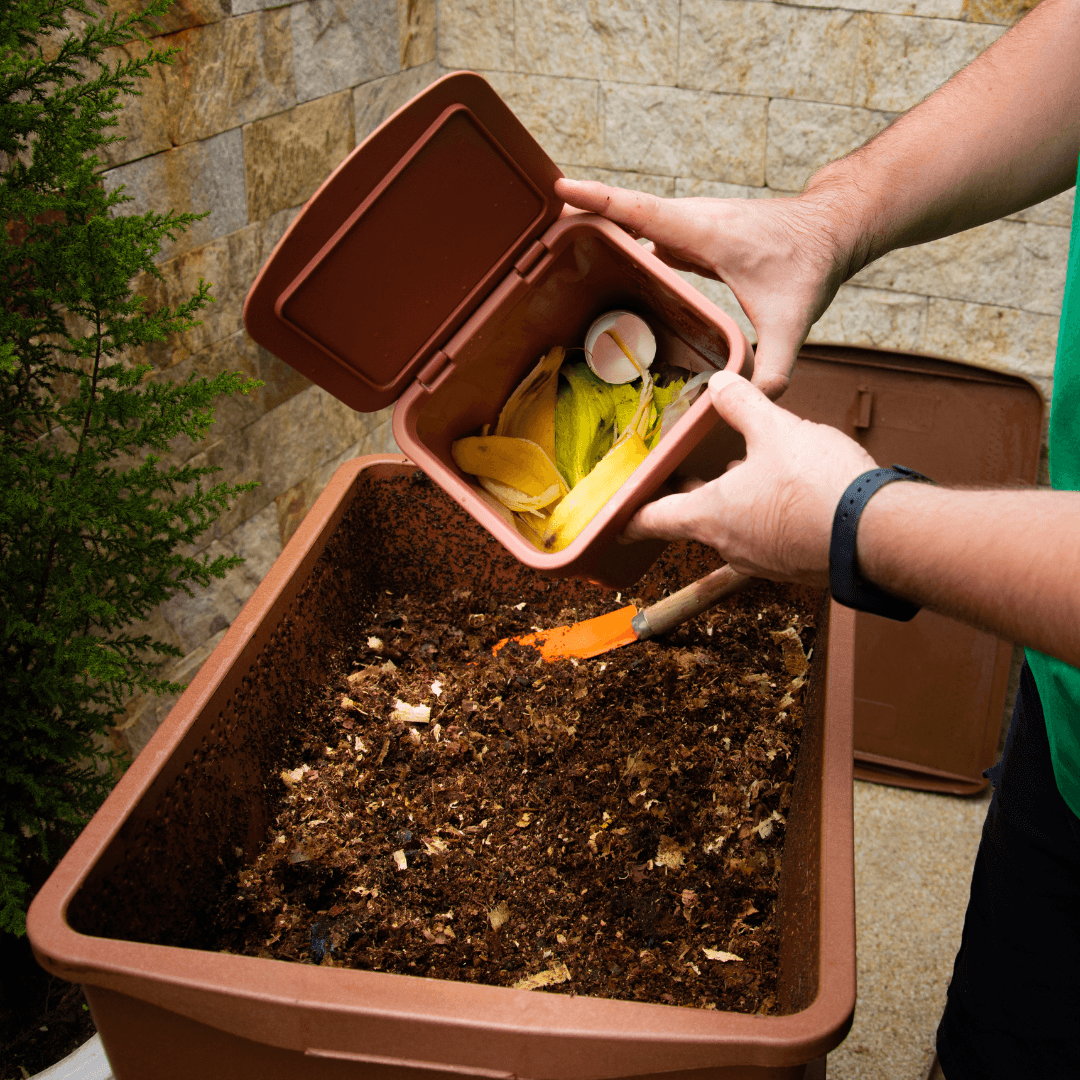
6. Compost
Compost, often called “black gold” among gardeners, is the cornerstone of thriving orchards and fruitful gardens. It's a testament to the beauty of recycling, transforming kitchen scraps, fallen leaves, and garden debris into a nutrient-rich masterpiece.
This dark, earthy blend is a symphony of decomposition, where organic matter undergoes a metamorphosis into a powerful elixir for your fruit-bearing plants. As compost settles into the soil, it performs an orchestra of functions that propel your orchard to greatness.
First and foremost, compost is a treasure trove of essential nutrients—nitrogen, phosphorus, and potassium—bestowing the sustenance upon your fruit trees and bushes they need to flourish.
But it doesn't stop there; it also acts as a moisture magician, bestowing the gift of water retention to the soil. Picture it as a sponge, cradling hydration for your thirsty plants during the hottest days of summer and the driest spells of the year.
Yet, compost's marvels extend beyond mere nutrients and moisture. It's a bustling metropolis for beneficial microorganisms, inviting earthworms, bacteria, and fungi to thrive in its organic embrace.
These microscopic allies work tirelessly, breaking down complex compounds, fortifying soil structure, and fending off plant pests and diseases.
Compost is more than a humble mixture; it's a testament to the circle of life in your orchard, where kitchen waste and yard clippings become the foundation for a bountiful harvest.
It's the gardener's treasure, the earth's elixir, and the key to unlocking the full potential of your fruit-bearing plants.
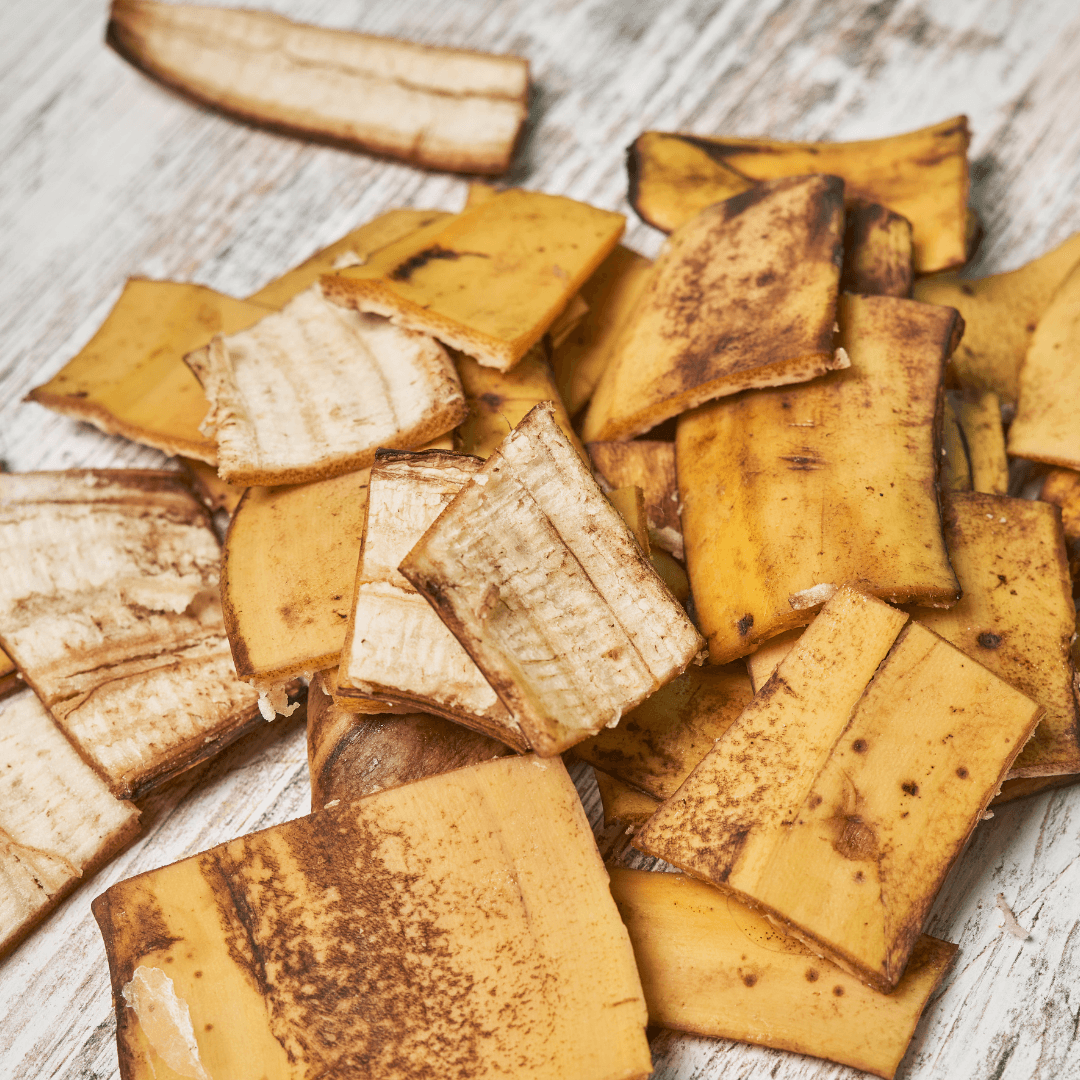
7. Banana Peels
Banana peels, often discarded without a second thought, are like nature's golden tickets to a spectacular fruit-filled show in your orchard.
These seemingly humble scraps hold a secret that can transform your fruit trees and bushes into flourishing, fruit-bearing wonders. At their heart lies potassium, a nutrient that plays a pivotal role in the grand orchestration of flowering and fruiting.
Potassium, the silent force behind healthy plant development, regulates crucial processes that result in vibrant blossoms and succulent fruits.
When you introduce banana peels to your orchard, you're effectively ushering in this essential element, ensuring that your fruit-bearing plants have an ample supply of potassium.
But the magic of banana peels doesn't stop at nutrient contribution. As these peels decompose, they enrich the soil with organic matter, improving its structure and moisture retention.
This, in turn, creates a nurturing environment where roots delve deep and branches reach high, all in pursuit of the sun's life-giving rays.
So, the next time you enjoy a banana, remember that the peel promises a fruitful future for your orchard.
By recycling these unassuming treasures back into the earth, you're reducing waste and actively participating in the natural cycle of growth and abundance, where banana peels become the unsung heroes of your thriving fruit garden.

8. Rock Dust
In the world of fruit cultivation, where every detail matters in the quest for exquisite flavours and abundant yields, rock dust emerges as a geological treasure trove for your orchard.
Crafted from the ancient essence of minerals and trace elements, this natural fertilizer, often hewn from sources like granite or basalt, is like a time capsule from the Earth's distant past. Adding to your orchard's soil becomes the alchemical key to enhancing fertility and elevating fruit quality.
Rock dust may appear unassuming, but its impact is profound. It imbues the soil with a rich tapestry of minerals—silicon, calcium, magnesium, and more—each contributing to your fruits' nuanced symphony of growth and flavour.
These minerals are the essential building blocks for plant health, bolstering cell structure, root development, and disease resistance.
As your fruit trees and bushes draw from this mineral reservoir, they become robust and resilient, producing fruits that taste better and store longer.
The subtle dance of minerals in the soil also enriches the fruit's nutritional profile, transforming each bite into a nutrient-packed delight.
Rock dust embodies our planet's geological heritage, unlocking the secrets of ancient landscapes to benefit your modern orchard.
Natural fertilizers for growing fruits, like rock dust, bridge the gap between the ancient wisdom of geological heritage and the modern orchard, fostering a harmonious relationship that enriches the earth and the fruits it yields.
It's a testament to the profound connections between earth and fruit, where the wisdom of millennia past converges with the promise of a bountiful future.
In the hands of a conscientious gardener, rock dust becomes the cornerstone of soil fertility, nurturing a thriving fruit garden and ensuring that every harvest celebrates nature's enduring beauty.
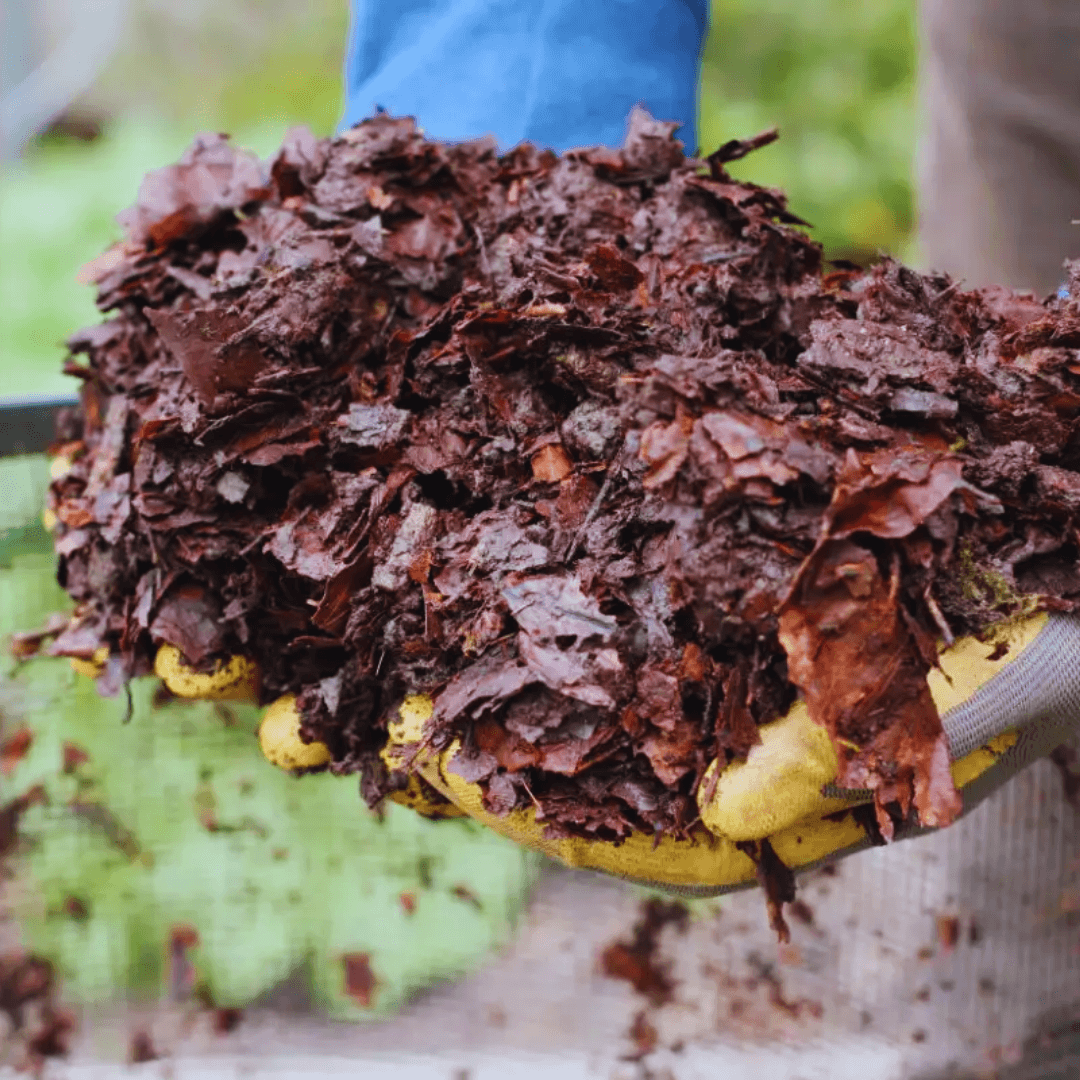
9. Leaf Mould
In the forest's quiet embrace, beneath the towering canopies and amid the rustling leaves, lies a treasure concealed by nature's gentle hand—the subtle alchemy of leaf mould.
Formed from the slow, patient decomposition of fallen leaves, leaf mould is like the forest's secret recipe for nurturing life.
When introduced to your orchard or garden, it brings the enchantment of the woodland floor to your fruit-bearing plants.
Leaf mould is a tapestry of organic matter, rich in humus and teeming with beneficial microorganisms.
As it crumbles into the soil, it bestows many gifts upon fruit trees and bushes. First and foremost, leaf mould enhances soil structure, transforming compacted earth into a welcoming haven for roots to explore.
It's the soil's natural architect, crafting a habitat where roots can thrive, expand, and seek out the nutrients they crave.
Yet, leaf mould's talents extend further; it is a master of moisture management. During the scorching summer days, it acts as a moisture reservoir, cradling hydration for your thirsty plants.
In the chill of winter, it provides insulation, protecting roots from harsh cold and frost. This duality ensures that your fruit-bearing plants are resilient, whatever the season.
Leaf mould is a reminder of nature's wisdom, where the simplest of processes—leaf fall and decay—yield the most profound results.
In your orchard, it is the storyteller of the forest's secrets, narrating tales of resilience, rejuvenation, and abundant harvests.
It transforms your garden into a thriving ecosystem, where every leaf tells a story, and every fruit is a testament to the timeless art of decomposition.
Conclusion
Selecting natural fertilizers for fruit growing is not simply a practical consideration; it also represents a step toward long-lasting and abundant harvests.
The protectors of our gardens, orchards, and natural fertilizers—those Mother Earth gifts—ensure every fruit is a masterpiece of taste, nutrition, and ecological balance.
Their contributions go beyond the visible fruits of our labour. They embody a commitment to sustainable farming practices, reducing our ecological footprint and safeguarding the delicate balance of our ecosystems.
Natural fertilizers are the keepers of traditions passed down through generations, the silent partners in our horticultural endeavours, and the stewards of a thriving, interconnected world.
As we conclude our exploration of these natural wonders, remember that the orchards and gardens are not just places of cultivation but also sanctuaries where the Earth's gifts are transformed into the sweet, succulent fruits that grace our tables.
In the tapestry of orchards and gardens, where the wisdom of natural fertilizers for growing fruits harmonizes with the Earth's gifts, every succulent fruit gracing our tables is a testament to the profound partnership between nature's timeless wisdom and the gardener's stewardship.
Let the wisdom of natural fertilizers guide your journey, nurturing not just the soil but the soul of your fruit-growing endeavours.
The fruit is not just the result of this partnership between Earth and the gardener. It is the harmonious culmination of nature's timeless wisdom and stewardship.
I trust you enjoyed this article on the Natural Fertilizers For Growing Fruits. Please stay tuned for more blog posts shortly. Take care!
JeannetteZ
>>>Please click here to read my all-inclusive article about Container Gardening<<<
>>>Are you interested in homegrown herbs and medicine? Please click here to find out more about it!<<<
Your Opinion Is Important To Me
Do you have thoughts, ideas, or questions? I would love to hear from you. Please leave your questions, experiences, and remarks about the Natural Fertilizers For Growing Fruits in the comments below. You can also reach me by email at Jeannette@Close-To-Nature.org.
Disclosure
This post may contain affiliate links. As an Amazon Associate and other affiliate programs, I earn from qualifying purchases at no extra cost to you. Please read my full affiliate disclosure.
You might also enjoy these blog posts:
Natural Fertilizers For Growing Vegetables
10 Essential Gardening Hacks Every Gardener Should Know
Best Tips To Grow Acacia Trees
Best Tips To Grow Hyacinths In Containers
Best Tips To Grow Siberian Squill In Containers

